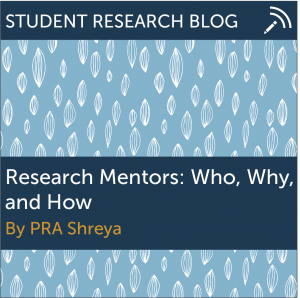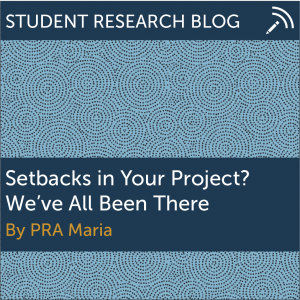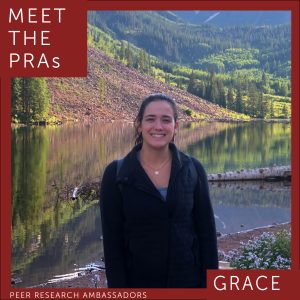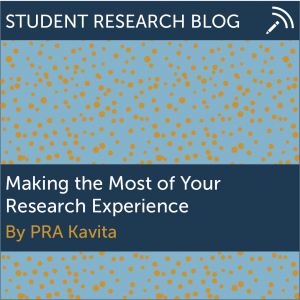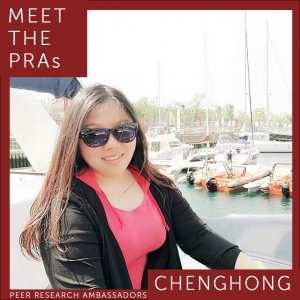Undergraduate students who are interested in participating in a summer research or internship program need to plan ahead. December is the time to gather together all the required elements of the applications, including faculty letters of recommendation. All of the exciting summer opportunities listed below have application deadlines in December or January! Check out the programs below and consider if any would fit with your research goals and interests.
DAAD RISE – Research Internships in Science and Engineering in Germany
Deadline: Applications are due by December 15, 2019; Letters of Reference are due by December 22, 2019; https://www.daad.de/rise/en/
DAAD RISE gives students in the fields of biology, chemistry, earth sciences, engineering, and physics the chance to spend a summer working on research projects with doctoral students at German universities and research institutions. Interested students must first register online between November 1, 2019 and December 15, 2019. Student application materials must be submitted by December 15, 2019, with letters of reference due December 22, 2019.
Science Undergraduate Laboratory Internships (SULI)
Deadline: January 9, 2020 at 5:00 PM ET
https://science.osti.gov/wdts/suli
The Science Undergraduate Laboratory Internship (SULI) program encourages undergraduate students to pursue science, technology, engineering, and mathematics (STEM) careers by providing research experiences at the Department of Energy (DOE) laboratories. Selected students participate as interns appointed at one of 17 participating DOE laboratories.
Summer ORISE Fellowship Opportunities at the CDC
Deadline: January 10, 2020; http://www.cdc.gov/nceh/dls/orise.html
Appointments through the Oak Ridge Institute for Science and Education (ORISE) Fellowship Program. Undergraduate students majoring in the applied sciences may apply. Biology and chemistry majors are preferred. Stipend of approximately $2,900 per month for undergraduate students.
Mickey Leland Energy Fellowship Program (MLEF)
Deadline: January 12, 2020; http://orise.orau.gov/mlef/
The Mickey Leland Energy Fellowship (MLEF) is sponsored by the U.S. Department of Energy’s Office of Fossil Energy. It is a 10-week summer internship program that provides opportunities to students who are pursuing degrees in STEM fields. The goal of the program is to improve opportunities for minority and female students in these fields, but all eligible candidates are encouraged to apply.
SENS Research Foundation (SRF) Summer Scholars Program
Deadline: January 15, 2020 at 12:00pm PST
http://www.sens.org/education/research-opportunities/srf-summer-scholars-program
This program offers undergraduate students the opportunity to conduct biomedical research under the guidance of a scientific mentor. Paid positions are available at a number of research institutions including Buck Institute for Research on Aging, Harvard Medical School, Sanford Consortium for Regenerative Medicine, and SRF Research Center. Full descriptions of each research project can be found at the website link above.
Cold Spring Harbor Laboratory – Undergraduate Research Program 2020
Deadline: January 15, 2020; https://www.cshl.edu/education/undergraduate-research-program
The URP program is designed to give students an opportunity to conduct first-rate research under the supervision of senior laboratory staff in the areas of cancer biology, neuroscience, plant biology, cellular and molecular biology, genetics and bioinformatics, and genomics. Selected students receive room and board in addition to a $5,500 stipend.
ThinkSwiss Research Scholarships
Deadline: January 15, 2020; http://thinkswiss.tumblr.com/About
ThinkSwiss scholarships support highly motivated undergraduates who are interested in doing research at a public Swiss university or research institute. The scholarship is open to students in all fields. A monthly stipend of approximately $1,650 is provided for a period of 2-3 months.
Summer Research Experience Program in Cancer Science – Roswell Park Cancer Institute
Deadline: January 17, 2020; https://www.roswellpark.org/education/summer-programs/college-students
This 10-week summer research program is open to students who are college juniors or junior-equivalents (credit-wise) at the time of application and who are interested in pursuing an advanced degree towards a biomedical research career. Areas of research include, but are not limited to: cancer biophysics, tumor immunology, cancer genetics, molecular pharmacology. Selected students will be working in a Roswell Park department alongside professional researchers and graduate students.
Summer Public Health Scholars Program (SPHSP) – Columbia University
Deadline: January 31, 2020; http://ps.columbia.edu/education/student-life/office-diversity/programs/college-and-post-baccalaureate-students/summer-publ
The Summer Public Health Scholars Program (SPHSP) is designed for undergraduate students who are interested in public health and biomedical science careers. Applicants must have completed at least two years of college. Students from underrepresented groups are encouraged to apply, and 42 students will be selected to participate. Students will receive a stipend, housing, and round trip travel.
Summer Undergraduate Program in Engineering Research at Berkeley (SUPERB)
Deadline: January 31, 2020; https://eecs.berkeley.edu/resources/undergrads/research/superb
The SUPERB Computer and Information Science and Engineering program provides undergraduates with the opportunity to work on research projects focused on using Big Data. This 9-week program is open to rising juniors or seniors who have completed some upper division course work in Electrical Engineering and Computer Sciences. Stipend of $4,500, housing, meals, and $600 travel allowance provided.
Maternal Child Health Careers/Research Initiatives for Student Enhancement – Undergraduate Program (MCHC/RISE-UP)
Deadline: January 31, 2020; https://www.kennedykrieger.org/training/programs/center-for-diversity-in-public-health-leadership-training/mchc-rise-up
MCHC/RISE-UP provides opportunities for enhanced public leadership in the area of maternal and child health. Three tracks are offered: clinical, research, and community engagement and advocacy. This program is open to juniors, seniors, and recent baccalaureate degree scholars interested in learning more about public health. A stipend ($3,000-$3,500) and housing are provided.
